Religion
Where the Bible Really Stands on Slavery
By Valerie Tasco
Special to the NNPA from the Houston Forward Times
Should a person be able to own another person? Today Christians uniformly say no, and many would like to believe that has always been the case. But history tells a different story, one in which Christians have struggled to give a clear answer when confronted with questions about human trafficking and human rights. Had the Bible been edited differently, Christendom might have achieved moral clarity on this issue sooner. As is, the Bible contains very mixed messages, which means that biblical authority could be invoked on either side of the question, leaving Christian beliefs about slavery vulnerable for centuries to prevailing cultural, political, and economic currents.
Old Testament Endorses, Describes, and Regulates Slavery
The Bible first endorses slavery in the book of Genesis, in the story of Noah the ark builder. After the flood, Noah’s son Ham sees his father drunk and naked, and for reasons that have long been debated, is cursed. One recurring theme in Genesis is that guilt can be transferred from a guilty person to an innocent person (think of Adam and Eve’s fruit consumption, which taints us all), and in this case the curse is put on Ham’s son, Canaan.
When Noah awoke from his wine and knew what his youngest son had done to him, he said, “Cursed be Canaan; lowest of slaves shall he be to his brothers.” He also said, “Blessed by the Lord my God be Shem; and let Canaan be his slave. May God make space for Japheth, and let him live in the tents of Shem; and let Canaan be his slave.” Genesis 9:24-27 NRSV
Most likely, this story was intended originally to justify the Israelite subjugation of Canaanite peoples, who, in other stories about the conquest of the Promised Land are slaughtered or enslaved. Later though, Christians and Muslims would use the story to explain why some people have dark skin, and “Ham’s curse” became a justification for enslaving Native Americans and Africans.
Throughout the Hebrew Old Testament, slavery is endorsed in a variety of ways. Patriarchs Abraham and Jacob both have sex with female slaves, and the unions are blessed with male offspring. Captives are counted among the booties of war, with explicit instructions given for purifying virgin war captives before “knowing them.” The wisest man of all time, Solomon, keeps hundreds of concubines, meaning sexual slaves, along with his many wives.
The books of the Law provide explicit rules for the treatment of Hebrew and non-Hebrew slaves.
- You may purchase male or female slaves from among the foreigners who live among you. You may also purchase the children of such resident foreigners, including those who have been born in your land. You may treat them as your property, passing them on to your children as a permanent inheritance. You may treat your slaves like this, but the people of Israel, your relatives, must never be treated this way. (Leviticus 25:44-46)
When punishing slaves, owners are given latitude that falls just short of on-the-spot murder:
- When a man strikes his male or female slave with a rod so hard that the slave dies under his hand, he shall be punished. If, however, the slave survives for a day or two, he is not to be punished, since the slave is his own property. (Exodus 21:20-21)
That said, the book of Deuteronomy explicitly forbids returning an escaped slave to his master, in a passage that was a favorite of abolitionists:
- Slaves who have escaped to you from their owners shall not be given back to them. They shall reside with you, in your midst, in any place they choose in any one of your towns, wherever they please; you shall not oppress them. (Deuteronomy 23:15-16)
Most Christians believe that Mosaic Law is no longer binding, and that the life of Jesus ushered in a new period of grace and forgiveness, but that hasn’t stopped Old Testament endorsements of slavery from shaping the course of Christian history. They are, after all, still in the Bible. Fourth century Catholic councils endorsed the Hebrew Scriptures as a package, permanently binding them together with the Christian writings that became the New Testament.
New Testament Encourages Kindness from Master, Obedience from Slave
Equally regrettable, from the standpoint of moral clarity, is the fact that New Testament writers fail to condemn Old Testament slavery. In fact, the Jesus of Matthew says that he has come not to abolish the Law but to fulfill it: “For truly I say to you, until heaven and earth pass away, not the smallest letter or stroke shall pass from the Law until all is accomplished” (Matthew 5:18).
Slavery comes up regularly in New Testament texts; but rather than repudiating the practice, the writers simply encourage good behavior on the part of both slaves and masters. Slaves are clearly property of the owners, as are their families. In one parable Jesus compares God to a king who has slaves. When one slave refuses to forgive the debt of a peer, the righteous king treats him in kind, “and, as he could not pay, his lord ordered him to be sold, together with his wife and children and all his possessions, and payment to be made” (Matthew 18:25).
#NNPA BlackPress
COMMENTARY: Prayer is Your Power
Terrible things happen to good people often. We live in an unjust world with people making decisions that are informed more by profit than people. We cannot take those principles into our relationship with God. We must believe that “… all things work together for good to them that love God, to them who are the called according to His purpose.”
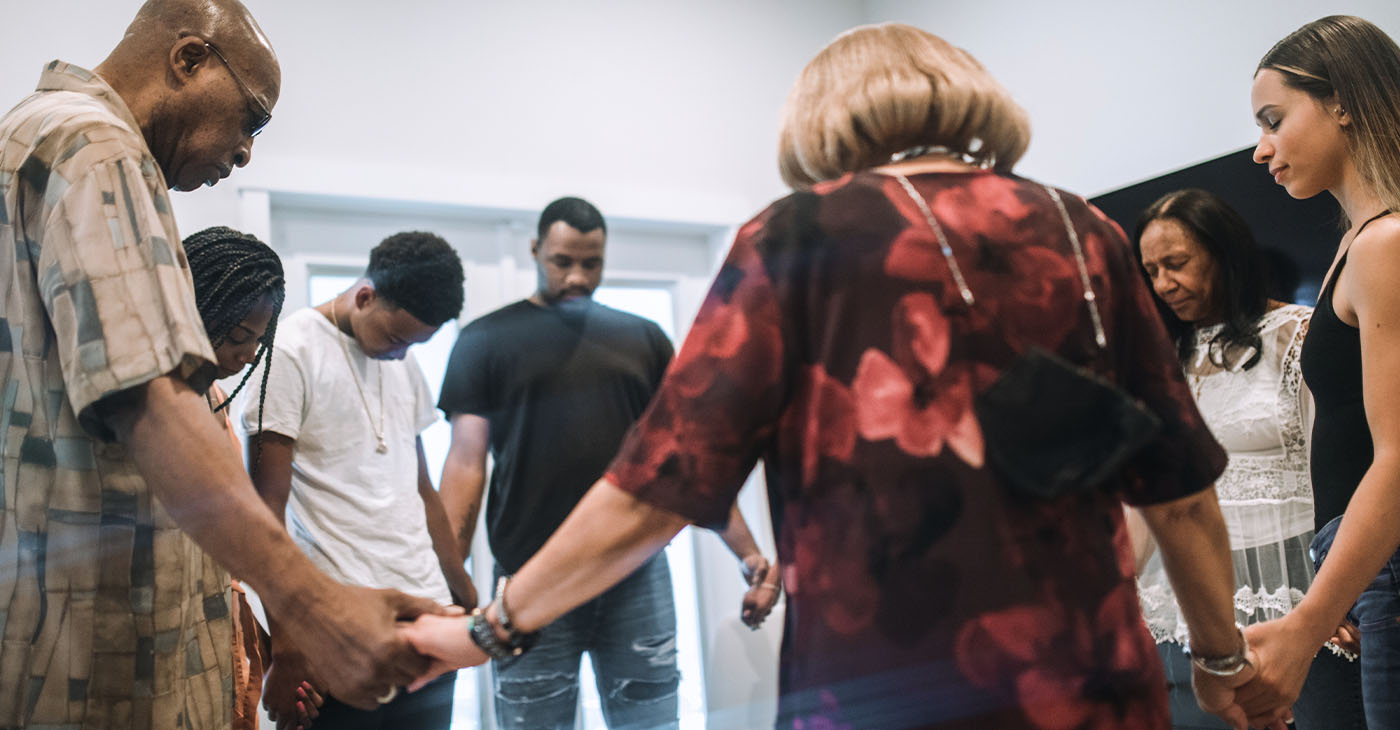
Faithful Utterances
By Dr. Froswa Booker-Drew | Texas Metro News
This week, a friend informed me that she was following the ambulance to the hospital with her husband. Her husband was going through a major health crisis. She wasn’t the only one who reached out—a friend’s mother had unexplained pain and another friend contacted me about her friend’s son who was hospitalized with pneumonia. Each of them asked that I pray for them.
I consider it an honor to pray for others. Prayer is powerful and I love that I have a group of friends who I can turn to that I call the “prayer warriors” that when I send a text to lift up the concerns and issues of others before God, they go into battle mode.
Prayer is a weapon and I think many of us don’t understand its power until we need it. For many of us, it’s a routine, something that’s more about religion than it is about relationship. We have gotten prayer twisted as some exchange solely for stuff. God is not a celestial Santa Claus dropping off gifts. Prayer is an opportunity to go before to God sincerely in relationship. “And when you pray, you must not be like the hypocrites. For they love to stand and pray in the synagogues and at the street corners, that they may be seen by others.
Truly, I say to you, they have received their reward. But when you pray, go into your room and shut the door and pray to your Father who is in secret. And your Father who sees in secret will reward you. And when you pray, do not heap up empty phrases as the Gentiles do, for they think that they will be heard for their many words. Do not be like them, for your Father knows what you need before you ask Him.” (Matthew 6:5–8)
Prayer is about faith. It is believing that God hears us. “Let us then with confidence draw near to the throne of grace, that we may receive mercy and find grace to help in time of need.” (Hebrews 4:16) I realize that my prayers are even more powerful when I am in relationship with others seeking God: “For where two or three are gathered in my name, I am there among them” (Matthew 18:20). It’s dangerous when we see prayer as a way to manipulate God into doing what we want. There is nothing wrong with bringing your requests before God but it’s important to check our motivation and intention. It’s also important to know that just because God doesn’t answer our prayers in the way that we want does not mean that God doesn’t love us.
It doesn’t mean that God does not hear us. It does not negate the omnipotence or goodness of God, either. We must believe that God is able. “And without faith it is impossible to please God, because anyone who comes to him must believe that He exists and that He rewards those who earnestly seek him.” (Hebrews 11:6) It’s easy to blame God when things don’t go the way we want them to—”the rain falls on the just and the unjust” (Matthew 5:45).
Terrible things happen to good people often. We live in an unjust world with people making decisions that are informed more by profit than people. We cannot take those principles into our relationship with God. We must believe that “… all things work together for good to them that love God, to them who are the called according to His purpose.” (Romans 8:28) …. God is concerned with our hearts, with people and cares for us even when things don’t go the way we’d like. I can report that all of the individuals we prayed for had excellent results.
God is good! Yet, I realize that this isn’t always the case. Prayer is powerful. God wants us to have this daily form of communication. 1 John 5:14, tells us: “And this is the boldness we have in Him, that if we ask anything according to His will, He hears us.” Don’t use prayer just when you need something. Just as all relationships require consistent communication for growth and results, the same is even more important in our relationship with God. Prayer is a powerful partnership with God that can move mountains when we believe!
Dr. Froswa’ Booker-Drew is the host of the Tapestry Podcast and the author of three books for women. She is also the Vice President of Community Affairs for the State Fair of Texas. To learn more, visit drfroswa.com.
Black History
AFRICAN-ISH: The First Christmas Story
Both Joseph and Mary were of the lineage of David, Joseph descended from David’s son Solomon (and Bathsheba), and Mary extended from another son Nathan. Therefore, they were required to go to the little town of Bethlehem, in Judea and there, in a cattle shed Jesus was born. (Bethlehem is 70 miles south of Nazareth and 5 miles southwest of Jerusalem).

By Simon Burris
The narrative of Jesus’ birth and proof of his Hamitic (Black) African bloodline* began in the Old Testament in the book of Genesis chapter 10, in the Land of Ham, located in southwest Asia and Africa. Three most prominent Hamitic personalities: Abraham, Isaiah and David.
People and places of Hamitic origins are underlined.
(1) Abraham the patriarch was Babylonian (Ethnic Ethiopian). Gen. 11:31; (2) Isaiah a prophet lived 750 years before Christ, predicted the virgin birth was a nephew of Amaziah a Judahite (Canaanite) king; and (3) David the great king of Israel was a descendant of Abraham, also of Tamar and Rahab (Canaanites).
The (Hamitic) Genealogy of Jesus Christ: Matthew 1:1-17; Luke 3:23-34
The Birth of Jesus: (about 6-4 BC)
Mary the virgin mother of Jesus and her husband Joseph the “foster” father of Jesus, a carpenter, lived in Nazareth, a town in northern Palestine.
At this time Emperor Augustus of the Roman Empire decreed that a census would be taken. Everyone in his domain had to go to his or her hometown to register. He probably ordered Cyrenius ( Quirinius ) the Afro Roman governor of Syria / Judeadistrict to take charge and supervise the mandate.
Both Joseph and Mary were of the lineage of David, Joseph descended from David’s son Solomon (and Bathsheba), and Mary extended from another son Nathan. Therefore, they were required to go to the little town of Bethlehem, in Judea and there, in a cattle shed Jesus was born. (Bethlehem is 70 miles south of Nazareth and 5 miles southwest of Jerusalem).
A short time later shepherds from the countryside as well as Wise Men (Magi) from neighboring countries Arabia, Babylonia,and Persia traveled to the nativity site, paid homage and worshiped the infant-Savior.
Now Joseph was warned by the Lord in a dream that Herod the Edomite king of Judea was plotting the murder of the child, fled with his family to Egypt, returning to Nazareth after the death of Herod.
Jesus had siblings, brothers Joseph, Simon, Epistle writers James, Jude, and several sisters. The last mention of Joseph occurs in the Gospel of Luke when he and Mary take the 12-year-old Jesus to Jerusalem. Mary played a vital role all through Jesus’ life, from the day He was born till the time of the crucifixion.
Conclusion: The four Gospels: Matthew, Mark, Luke and John chronicled the full theme of Christ as the universal Savior. *Descendants of Ham’s sons Cush (Ethiopia), Mizraim (Egypt), Put (Libya) and Canaan (Ancient Palestine/Israel). Genesis 10: 6-20
Footnotes: Why is Christmas celebrated on December 25?
The ancient Romans celebrated the winter solstice on December 25 as the birthday of the SUN; the Babylonians and Persians -SON of the SUN. Some 300 plus years after Jesus’ earthly demise, Roman Emperor Constantine in 336 legalized this date as the birthday of the SON of GOD – JESUS the CHRIST! Originally: Christ’s Mass.
Eurocentric racism: Pope Julius II in 1508 commissioned Michelangelo, Raphael and other Renaissance artists and church scholars to portray and depict almost all major biblical characters as Europeans (Caucasians), save servants and slaves.
Activism
SDA Churches Join Outreach Efforts to Find Solutions to Upsurge of Violence
the Northern California Conference of Seventh Day Adventists (SDA) held their annual Convocation at Grand Avenue Seventh Day Adventist Church in Oakland. Seven hundred people came together in celebration and worship. The theme was “Embracing Change.”
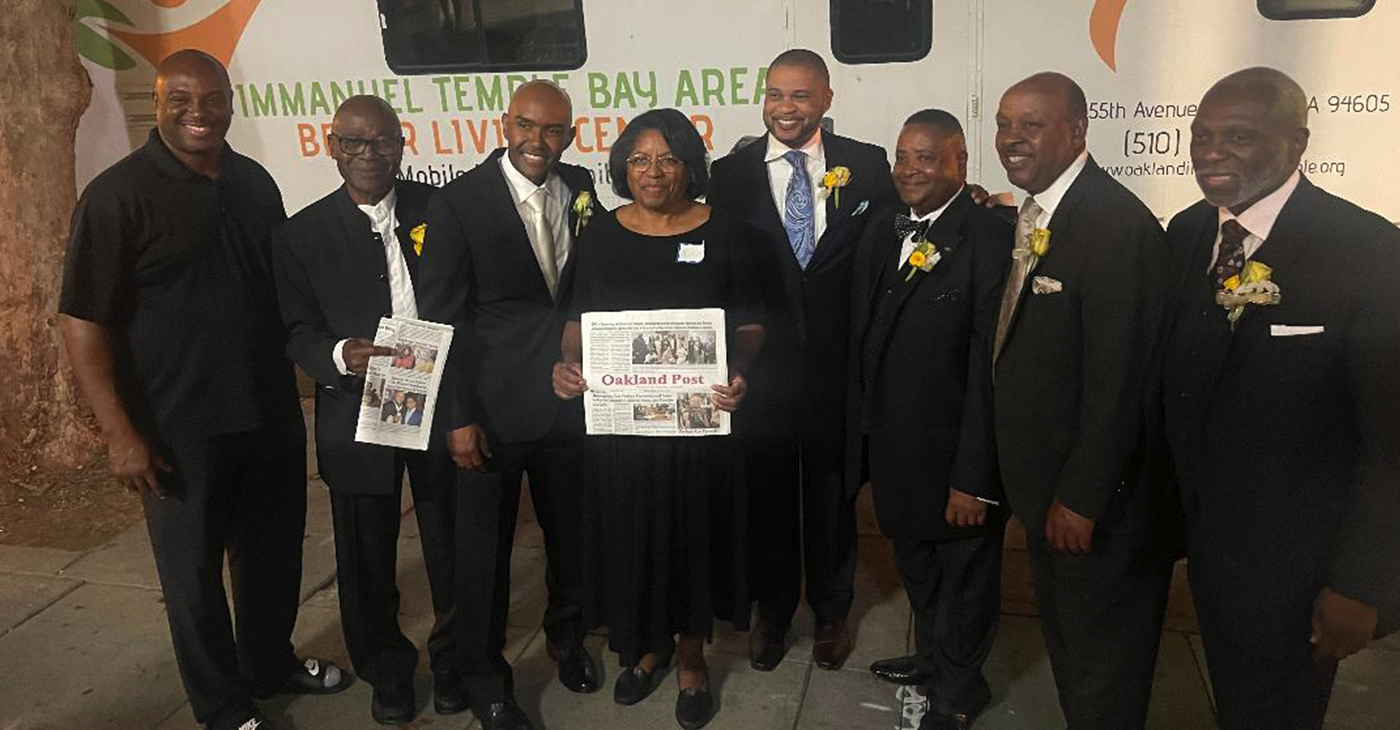
By Post Staff
On Oct. 8, the Northern California Conference of Seventh Day Adventists (SDA) held their annual Convocation at Grand Avenue Seventh Day Adventist Church in Oakland. Seven hundred people came together in celebration and worship. The theme was “Embracing Change.” The guest speaker was Dr. Myron Edmonds, who pastors in Cleveland, Ohio. He spoke about how Christ wasn’t a traditionalist, and the work isn’t being done because some in the church don’t wish to change and they tend to demonize new ideas.
Throughout the day, the Mobile Medical Health Van operated by Immanuel Temple Seventh Day Adventist Church out of Oakland sat in front of the church and provided health screenings and community resource information to the general public. The Medical Van, which was gifted to the church by Pastor Raymond Lankford of Healthy Communities, has provided free health care services throughout Alameda County for the last few years. The prayer of Pastor Damon Washington of Immanuel Temple Church, who was ordained during the afternoon program, is for their health ministry to partner with the other providers like OPIC and Oakland Workforce Agencies and to combat the ongoing health disparities and violence within the city and beyond.
They have pledged to work with the Chaplains, the OPIC and the Formerly Incarcerated Giving Back, who want to make amends for the damages they have done to harm Oakland.
-

 Community3 weeks ago
Community3 weeks agoFinancial Assistance Bill for Descendants of Enslaved Persons to Help Them Purchase, Own, or Maintain a Home
-

 Business3 weeks ago
Business3 weeks agoV.P. Kamala Harris: Americans With Criminal Records Will Soon Be Eligible for SBA Loans
-

 Activism3 weeks ago
Activism3 weeks agoOakland Post: Week of April 10 – 16, 2024
-

 Community3 weeks ago
Community3 weeks agoAG Bonta Says Oakland School Leaders Should Comply with State Laws to Avoid ‘Disparate Harm’ When Closing or Merging Schools
-

 Community2 weeks ago
Community2 weeks agoRichmond Nonprofit Helps Ex-Felons Get Back on Their Feet
-

 Community2 weeks ago
Community2 weeks agoOakland WNBA Player to be Inducted Into Hall of Fame
-

 Community2 weeks ago
Community2 weeks agoRPAL to Rename Technology Center for Retired Police Captain Arthur Lee Johnson
-

 Activism1 week ago
Activism1 week agoOakland Post: Week of April 24 – 30, 2024





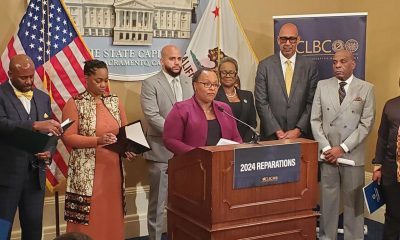

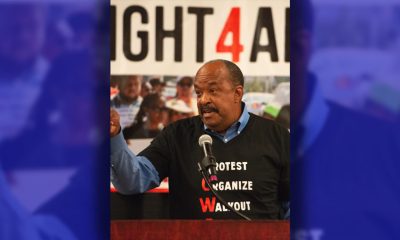



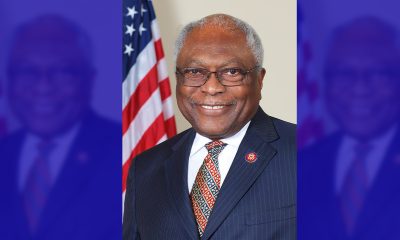













































Pingback: Yahabari..South Florida Afro American Aggregated News Portal ! - Where the Bible Really Stands on Slavery
Pingback: Yahabari..South Florida Afro American Aggregated News Portal ! - Where the Bible Really Stands on Slavery